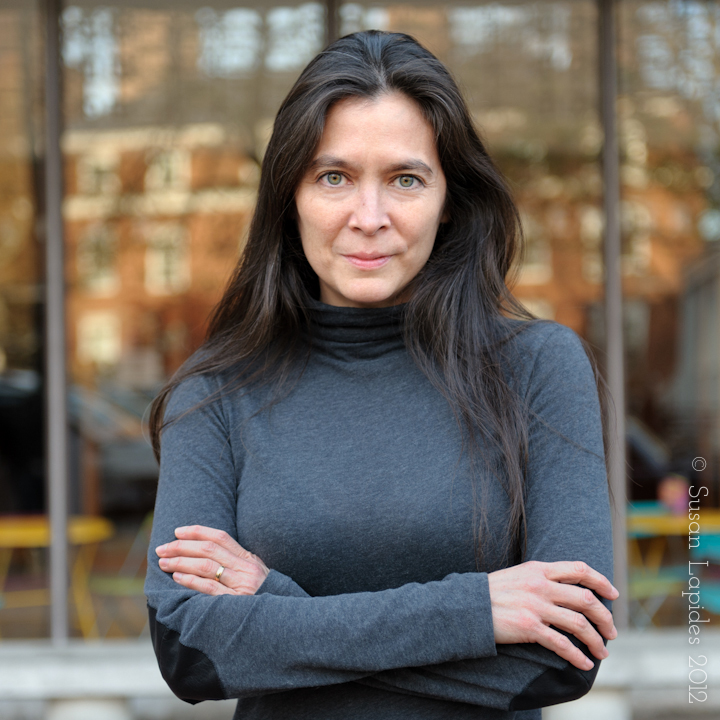
Sitting down with Diane Paulus is like finding yourself on the stage of great theatrical production where you are rapt with awe and fascination on how one woman could have such deep love for theater and recognize its power to transform her audience into a character in the play. I fell for it, willingly. Instead of telling me, she asked me: What is theater? Is it a play in an auditorium on a stage or is it a social event? Is it a community event? Where is it? Is it at a nightclub like Donkey Show or is it outside on the Charles River?
I don't know? I am a mere human who read a few books along the way and saw Pippin and Marie Antoinette, the odd David Mamet and Cats once in London at age 20. She had me at What is?
Diane Paulus has a following and not just on stage. Since she's arrived in Cambridge, I have run into countless former Harvard classmates, fellow mom's with kids her kids' ages, and old childhood friends of hers who absolutely adore her. Even last night sitting by a pool in Newton, I was told of how she invited all her Harvard reunion classmates to bring their children to see a special matinee of The Pirates of Penzance at the A.R.T. Generous and clever. She's a powerhouse.
Before she won the Tony last night, I asked her what she was trying to change by becoming the third Artistic Director of the American Repertory Theater (A.R.T.) and as a Harvard alum.
"The A.R.T. has a great legacy for being a place of vision and radical action, and I thought, 'Where does the theater have to go in the 21st Century?' For me, it has to diversify. It has to open up. Art cannot be looked at as an elite, sacred event anymore. It has to be embraced as an accessible, popular form, which is what I believe theater is at its roots. But that doesn't mean that it isn't challenging or intellectually stimulating. It's all of those," said Paulus.
And so with Pippin she brought the circus to the stage taking the stodgy old A.R.T reputation all the way to Broadway as innovative, exploratory and fun. Imagine, the Republic of Cambridge being called fun. But your late to the party if you believe that. She started the transformation long ago with the Donkey Show. All that glitter and nudity around all that plaid. It was a fabulous kickoff.
When I asked her about the dichotomy between the A.R.T. high art productions against The Lion King's of the world, she challenged her own industry and herself.
"I think in our culture there's been a tendency for people to blame the audience. There is a tendency in our industry to say, 'The audience has left the building. People don't want culture anymore. We're a depraved civilization. All this technology, all the computer games and the iPhones...nobody will sit for art anymore. What a dismaying state of humanity.' I feel as a theater creator, and now as a producer, that this is the wrong way to think about it. We must ask: What are we doing? How are we responsible? How can we create experiences that will bring audiences back?"
And what does she expect in return from the audience? An open mind. "I'm on this quest to say theater can be a nightclub. Theater can be politics. Theater can be a hootenanny in our lobby. When we did Woody Sez, it was my fantasy come true."
But Pippin? You see, I am not generally a musical fan and Diane is one of the most ardent. And this is when she made me reconsider by drawing on my respect for a body of work that has meaning.
"The musical theater is a glorious and distinctly American innovation in the history of theater. We can't claim the Greeks. We can't claim Shakespeare. We can't claim Chekhov. But we can claim the musical theater as ours. If you ask the majority of Americans what was the most transformative experience they've had culturally, nine times out of ten, people will cite a musical. They will cite a musical either that they saw in their high school or they saw at their community theater or on Broadway. Musicals have touched people for years and there is an undeniable power to a musical that doesn't get its due respect as an art form, which it is."
I think it just did.
This is an exclusive excerpt on the Huffington Post. For the full interview with Diane Paulus, Director of the ART and Pippin, go to www.theEditorial.com.